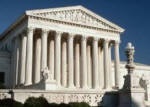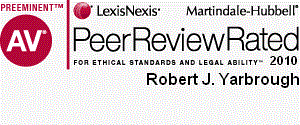Newsletter Issue 63 - May 2014
In this issue:
Expansion of copyright
Delay in copyright enforcement
Employers- get assignments
Ask Dr. Copyright ...
Dear Doc:
I have heard that the music and movie industries want Congress to
add a new part to the Copyright Law, one that would say that it is a
violation of a copyright owner's rights to "make available" a copy
of a work, even if the copy is never accessed by anyone. What gives?
Signed,
Marian the Librarian
Dear Marian:
Here at the Gary Conservatory of Copyright, we were taught that
copyright protects authors, songwriters, and other creative types
from the evils of people taking their work without paying for it
(literally, that the creators control the right to copy.) How wrong
our professors turned out to be! You see, Congress has been adding
more and more "exclusive rights" to the Copyright law for many
years. Section 106 of the law (17 U.S.C. ¶106) lists six separate
rights: (1) to reproduce ...; (2) to prepare derivative works ...;
(3) to distribute ... by sale or other transfer of ownership, or by
rental, lease, or lending; (4) ...to perform the copyrighted work
publicly; (5) ... to display the copyrighted work publicly; and (6)
...to perform ... by means of a digital audio transmission. This
system of rights has grown up over the years as owners of works saw
that technologies made new kinds of value possible. They have gone
to Congress with an argument of, "if value, then right" and
Congress, sensing that large campaign contributions might be
involved, has usually gone right along with them.
Of course, some legal scholars have argued that the Constitutional
mandate for Copyright, found in Article I, Section 8, Clause 8, is
supposed, "To promote the Progress of Science and useful Arts, by
securing for limited Times to Authors and Inventors the exclusive
Right to their respective Writings and Discoveries." They have made
this argument, most recently to the Supreme Court, in trying to say
that you can't achieve this goal by stretching the term of copyright
protection to far beyond the life of the author (since you can't
promote her doing anything about progress after she's dead.) Sadly,
the Supreme Court just punted by saying (if you can believe this)
that Congress knew what it was doing when it extended the term to
life plus 70 years in the "Mickey Mouse Copyright Extension Act"
(here
is a very complete history of copyright extension).
Now, the recording and movie industries, together with other
publishers, want a new right that they claim arises from
international treaties that the United States signed a few years
ago: the "making available" right. Recent court decisions in cases
about Internet file sharing have required that the plaintiffs show
that files were actually downloaded from the defendant's computer
(thus running afoul of the "reproduce" and "distribute" rights, if
not some of the others.) The trouble, say the RIAA and MPAA, is that
they should not have to prove this, because peer-to-peer software,
such as BitTorrent, makes it hard to prove. Just putting a file into
your shared folder on your hard disk should be enough, according to
industry lawyers. Some cases also back them up. In one such case,
penalties were handed down for just putting a book on a library
shelf, even though there was no evidence that the book was ever
checked out, or even taken from the shelf and read.
One of the dangers of doing away with proof of actual downloading is
that it may exacerbate the problem of copyright porno-trolls. What,
you ask, is a porno-troll??? Porno-trolls are companies that
produce and own the copyrights to pornographic videos, and that sue
people who they believe have downloaded such videos for copyright
infringement. They usually sue a number of unnamed defendants
(called the "Does" after that well-known defendant, John Doe and his
significant other, Jane.) They usually offer to settle for a sum of
money, and in return agree to a confidentiality provision that keeps
the real name of the Does secret. Since most Does would rather not
have their taste in video entertainment made public, this is a very
successful business model, and one company, Malibu Media, filed
almost one-third of all copyright law suits in the United States
last year. Some courts defend this
practice as legitimate, but other judges have been critical of the
scheme.
So, Marian, that is why the Doc went to Washington, DC this month to
testify at a Copyright Office meeting about this "making available"
change to the copyright law. It's complicated stuff, but in the end,
the Doc thinks that Copyright has gotten out of hand, gone off the
rails, and that the inmates are running the copyright asylum. What's
the chance that the Doc's view will prevail? Hard to say, but at the
meeting, there were a handful of folks saying that this needs a lot
of careful thought, and dozens of lawyers from record companies,
copyright troll companies (see last month's column on that), the
movie industry, and others, all demanding more rights and easier
standards for winning law suits. The Doc does not condone any kind
of copyright infringement, but when we have a law that is out of
step with both ordinary behavior of citizens and with its
foundational principles, something's wrong. The Doc thinks we need
to address that, rather than making it more wrong.
Until next month, if you have a copyright question, or get a
threatening letter from Malibu Media (oops!), talk to one of the
attorneys at LW&H... they eat this stuff for breakfast.
"Raging Bull" and "Stairway to Heaven" -- Old But Not Forgotten
This week, the United States Supreme Court issued an opinion of
great importance to those wishing to enforce their copyrights. In
Petrella v. Metro-Goldwyn-Mayer, Inc., the Supreme Court clarified
confusion among lower courts about whether the doctrine of laches
(also known as unreasonable delay) could bar a lawsuit for copyright
infringement. While the court's opinion may read to lay persons as
legal mumbo-jumbo, it is of significant importance to copyright
owners.
In Petrella, the copyright owners of the screenplay for "Raging
Bull," the movie directed by Martin Scorsese in 1980, sued MGM for
damages resulting from the studio's infringement. Surely, you may
ask, MGM had rights to the screenplay. Well, at one time it did.
Petrella's father and his co-author boxer, Jake LaMotta. assigned
the rights to MGM, which registered the copyright in 1980. However,
when Petrella died in 1981, by law, the rights reverted back to his
daughter. MGM failed to obtain the rights after that event.
Petrella's daughter waited until 2009 to sue the studio. Because of
her delay, MGM argued that her lawsuit is barred by the doctrine of
"laches" or unreasonable delay. The lower courts agreed but not the
Supreme Court. The Supremes held that laches was irrelevant to
infringement, which is controlled by a three-year statue of
limitations, and Petrella had a right to sue for any infringements -
of which there were many - that occurred within the three-year
period preceding her filing of the lawsuit.
During the same week that the Supreme Court handed down this
decision, we also learned that the estate of Randy California,
guitarist in the band Spirit, is
suing Led Zeppelin for copyright
infringement, claiming that the one of the greatest rock songs ever
written, "Stairway to Heaven" uses riffs that California wrote for
an instrumental called "Taurus." Stairway to Heaven was written in
1970, two years after Led Zeppelin and Spirit "shared stages"
together during their U.S. tour. Regardless of the lawsuits merits,
it would appear that the estate of Randy California unreasonably
delayed its lawsuit, particularly since it has been bandied about
for years that Jimmy Page, the author of Stairway to Heaven, stole
the opening riff from Randy California. After Petrella, however,
the 40 year delay does not appear to be a hindrance.
Employer's To-Do List: Get Invention Assignments from All Employees
Do your employees create new inventions, products or designs?
Have all of your employees assigned all company inventions to the
company? If not, then the company does not own the invention, even
if the invention was created on company time and with company
resources and in the course of the employee's work for the company.
That's the takeaway from
Peregrine Semiconductor v RF Micro Devices
(S.D. Cal. 2014).
Peregrine developed new products and obtained patents for those
products. Peregrine sued RF Micro Devices for infringement of the
patents. During the course of the litigation, the parties learned
that a former Peregrine employee should have been named as an
inventor on the patents, but was not. Peregrine usually obtained
assignments of patent rights from all employees, but could find no
such assignment from the former employee and the former employee had
no recollection of signing such an assignment to Peregrine.
Instead, the former employee subsequently assigned his patent rights
to RF Micro Devices, the accused infringer.
Peregrine now finds itself in the embarrassing position of co-owning
the invention with RF Micro Devices,.
The case includes a discussion of the 'hired to invent' doctrine, in
which a person is employed to solve a particular problem. Under
Federal common law; that is, law made by judges in their decisions,
an invention created by a person hired to solve a particular problem
is owned by the employer even if the inventor did not sign an
assignment. In the Peregrine situation, the former employee had
performed several different functions for the company during the
course of his employment and was not hired to solve a particular
problem. He was not 'hired to invent' and Peregrine did not own his
rights to the invention.
The result was that a preliminary injunction against RF Micro
Devices was denied.
The bottom line? Make absolutely sure that every employee has
signed an agreement assigning patent rights to all company
inventions to the company. The agreement can be in the employment
agreement and can apply to inventions that the employee has not yet
created..

